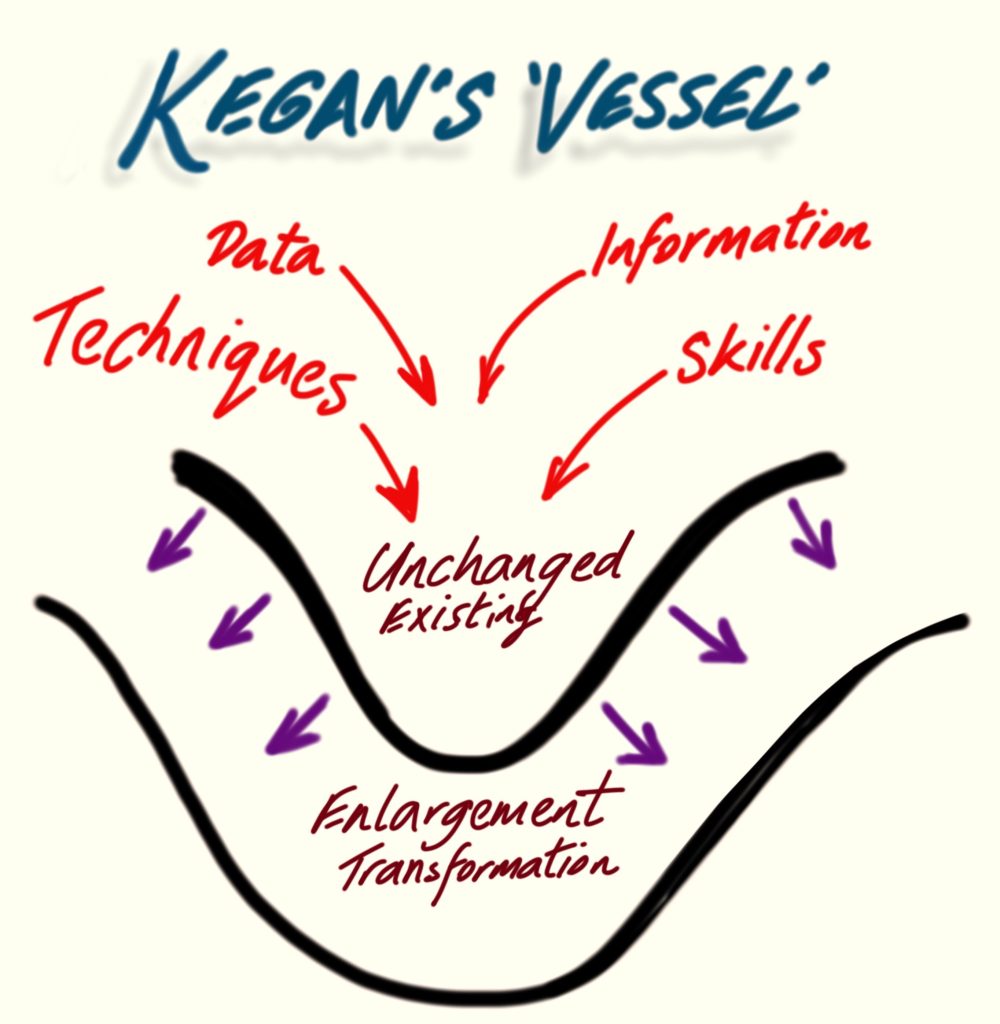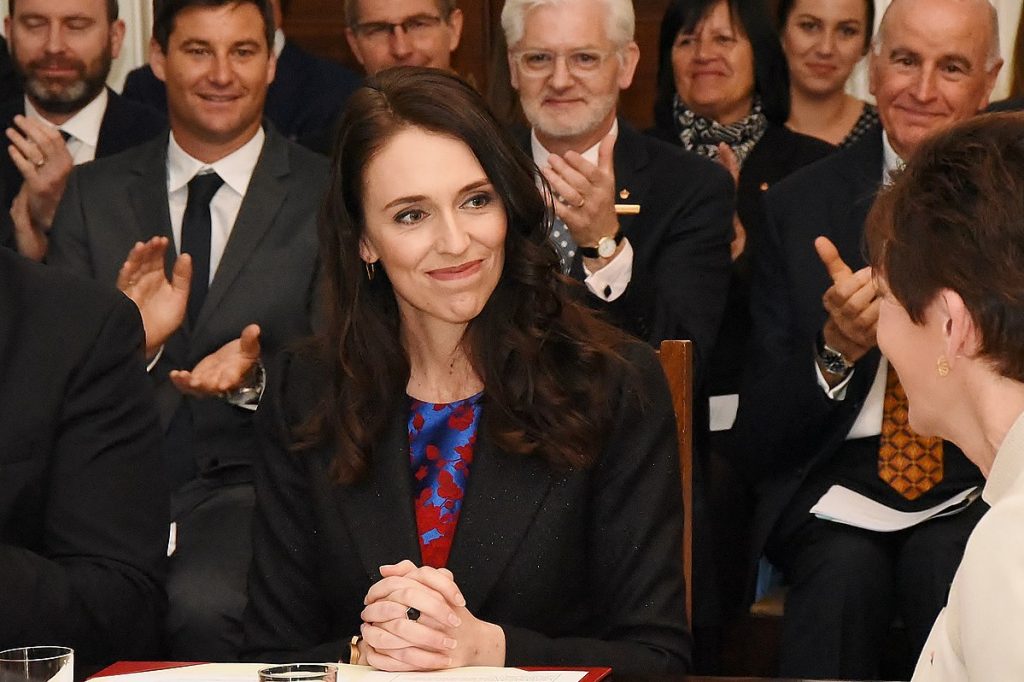By Connell Fanning and Assumpta O’Kane
Jacinda Ardern’s unexpected decision to resign as prime minister of New Zealand was seen by many people as the result of a long campaign of vitriol waged against her. This was reflected largely in the media where the consensus was that this much loved and respected politician had been harassed out of her job.
In a society where social media has driven bullying behaviour to a terrible level, this is an understandable view. But seeing it only through this lens means that we may miss something more vital altogether and, moreover, something with implications for ourselves.
In announcing her intention to resign, Ardern talked about no longer having “enough in the tank” to do her job properly. Those who believe that bullying forced her to quit could well see that as confirming that she had been driven to the end of her tether. Let’s stop and think for a minute, however, to see if what she said could possibly point to somewhere else, to a different meaning and truth.
Attending to what Ardern said
Let us first ‘visit’ what Ardern actually said in her speech (full transcript here):
“I’m entering now my sixth year in office and for each of these years I have given my absolute all. I believe that leading a country is the most privileged job anyone could ever have, but also one of the more challenging. You cannot and should not do it unless you have a full tank, plus a bit in reserve for those unexpected challenges. This summer, I had hoped to find a way to prepare not just for another year, but another term because that is what this year requires. I have not been able to do that. And so, today I’m announcing that I will not be seeking re-election and that my term is Prime Minister will conclude no later than the 7th of February.
This has been the most fulfilling five and a half years of my life, but has also had its challenges… But I’m not leaving because it was hard. Had that been the case, I probably would’ve departed two months into the job. I am leaving because with such a privileged role comes responsibility. The responsibility to know when you are the right person to lead and also when you are not. I know what this job takes, and I know that I no longer have enough in the tank to do it justice. It’s that simple…
In fact, I’m not leaving because I believe we can’t win the election, but because I believe we can and will, and we need a fresh set of shoulders for that challenge. I know there will be much discussion in the aftermath of this decision as to what the so-called real reason was. I can tell you that what I’m sharing today is it. The only interesting angle that you will find is that after going on six years of some big challenges, I am human. Politicians are human. We give all that we can for as long as we can, and then it’s time. And for me, it’s time.”
Acknowledging that there will be a lot of speculation about “the so-called real reason” for her resignation, she seems to be saying that in the end it simply came down to the fact that she herself has reached some kind of limit about herself.
The question that this poses is whether we are open to considering what Ardern herself may have meant by all of this and to move beyond looking through the lens of ‘bullying’ and ‘harassment’. It may be of much more value to us, we suggest, to examine that statement as touching on where she was in terms of her own ‘personal development’.
An alternative way of seeing
As authors of The Leadership Mind, we are conscious that one of the most important things to know about any person, including ourselves, is their personal developmental level.
The concept of ‘personal development’ refers to enlarging the complexity of how we organise our experiences into our meanings and truths. This capability is a distinct matter from the education and training on which we tend to focus our efforts. The fact that such personal development can be continued throughout adulthood, after our formal education ends, is also still not well known and is not therefore yet a widely used concept for thinking with in our relating to people and ourselves.

The metaphor of a vessel is used by Robert Kegan of Harvard University, the foremost thinker in this field, to convey his idea of personal development (see image). At any point in our life, we have a capability for organising our experiences into meanings and truths. This is illustrated by the upper black line representing the ‘current vessel’ — our present capability. More information, knowledge, and skills can be poured into that vessel but the meanings and truths we make of them are governed by our unchanged capability and so they will remain as before. More education as such does not enlarge the ‘vessel’, our capability.
We can only transcend the limit of our current capability by transforming how we make meanings and truths to meet more complex demands, as illustrated by the larger space marked by the lower black line in the image. This is what ‘personal development’ means.
Our stages of development serve us well at each stage but also have their limits. For example, we would not expect the meaning and truth making capability of an 8-year-old child to be aligned with the complexity of the current world of politics and business, or even evolving family structures.
Interpreting Ardern with a different concept
We are not concerned in any way with assessing Jacinda Ardern’s developmental level, as this is something that could only be done through detailed conversation with her. We are working here only with her public persona. We suggest on that basis that her statement of no longer having “a full tank, plus a bit in reserve” indicates the kind of unease research indicates people feel when they are at the limit of their current meaning and truth making ability in relation to the demands the world is making of them and consequently signals the need to transform into a larger capability.
A closer look at her speech suggests that there is more going on for her than can be understood by what the media were proposing and poses the question about how we think and specifically what concept we were using to interpret her statements and how we selected or constructed it.
It may be factually correct to say that, almost like any politician, Ardern is inevitably subject to vile commentary on social media. We suggest, however, that the concept of ‘personal development’ provides a more correct understanding of what she said. This is also a matter which we might fruitfully consider in relation to ourselves.
Her statement that the “only interesting angle that you will find is that …I am human” would suggest that we should grasp the meaning of what she is saying. As with any person, she is going through her stages of development, and one of the features of the development process is that we reach limits of our capability and must go through a significant transition if we want to develop. (This theme is explored in Chapter 7 of Fanning and O’Kane, The Leadership Mind, 2022)
Speculative as it may be, we allow that Ardern is at what Kegan calls the ‘self-authoring’ stage of adult development (see here), one that only about one third of an advantaged population achieves. A further important finding of Kegan’s longitudinal research (see here) is that “…it is rare to see people moving beyond [this] order, but when they do, it is never before their forties…”. Ardern, at 42 years, is thus at the cusp of the potential movement to that higher mind. This would be further support for the way we are viewing her resignation statement.
Her overall tone is perhaps that of a person granting themselves the time and space to work on her further development. If valid, this would also suggest that she is probably doing the right thing for herself by giving herself space for continuing her personal development rather than forcing herself to being stultified in the cage of the professional politician of today.
Turning to ourselves
We are concerned in this series with ourselves, with how we think and, specifically, with how we use concepts in our thinking. Thus, whether our interpretation of Ardern’s statements is correct is not the central matter.
These articles are invitations to stop and think with us as we consider how we react to daily events and train our imagination to go visiting other perspectives as a way of opening up awareness of how we are thinking.
Their purpose is to offer a different perspective, for example, about what may have been going on for Jacinda Arden. Her own words suggest that there is much more going on for her than can be explained by what the media are proposing. When we stopped to think, we felt that their explanation didn’t hold up, and so we went looking for a different concept to broaden our thinking on this particular situation. We decided to use the lens of ‘personal development’ through which to view the situation.
Our focus is on awareness of how we select and use concepts in our relating to others. Are we in the habit of using our imagination to go visiting, to consider other concepts outside those of our initial reactions to people? Certainly, concepts of ‘bullying’ and ‘harassment’ may be relevant, but by opening up our imagination to the concept of ‘personal development’ we have another way of making meaning of what Jacinda Arden had to say. In this case, we would suggest that ‘personal development’ appears to provide a better understanding of the feelings expressed by her and, thereby, the meaning and truth of what she was saying. In light of the above argument, we can ask of ourselves: What we are learning about ourselves as thinkers? Is there anything in the article which caught our imagination? Did any part of it bring us to pause and reflect on the experience of that news item?



